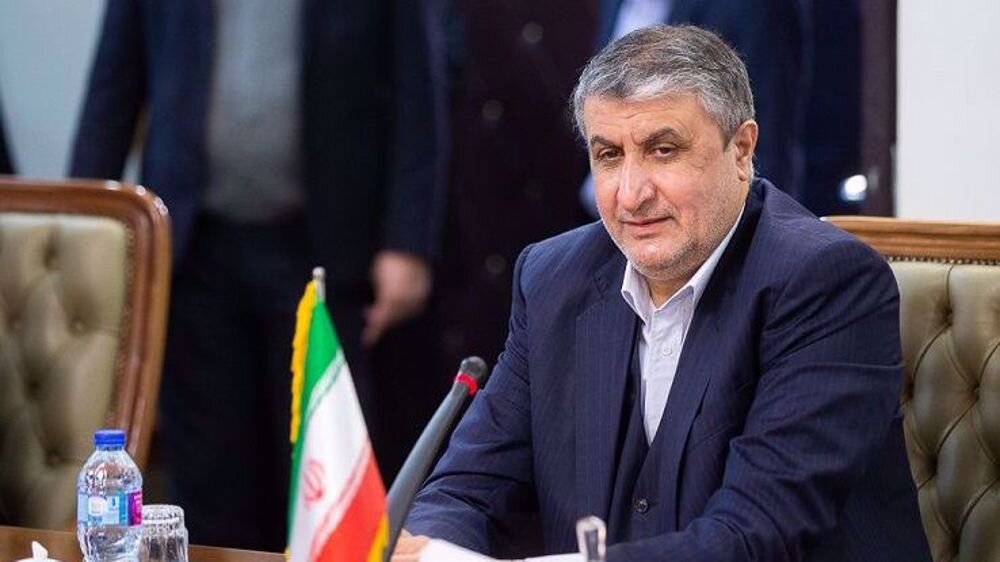Nuclear chief denies installation of 100 cameras in Isfahan plant

TEHRAN – Mohammad Eslami, the head of the Atomic Energy Organization of Iran (AEOI), on Wednesday, dismissed as untrue speculations that dozens of surveillance cameras have been installed at the Isfahan nuclear plant.
“Such a thing is not true, we do not have a power plant in Isfahan to have 100 cameras installed there,” Eslami said in response to a question on the installation of the cameras in contravention of the Parliament’s Strategic Action Law.
The nuclear chief made the remarks after a cabinet meeting.
“The Atomic Energy Organization will act based on the Strategic Action Law,” he said according to IRNA.
The Strategic Action Law that was passed by the Iranian parliament in December 2020 regulates Iran’s nuclear interactions with the West.
He added, “In the understandings made with the agency in March, the discussion of the continuity of knowledge with the agency, which is part of the safeguards and NPT requirements, was published in the form of a statement. Accordingly, actions are being coordinated and carried out.”
Eslami noted, “Iran's actions are within the framework of safeguards, and the criteria for Iran's action in terms of quantitative and qualitative goals is the law of strategic action to lift sanctions.”
Iran and the International Atomic Energy Agency have reached an understanding to boost cooperation. And according to this understanding, Iran pledge to undertake a set of measures to further clear up some of the misunderstandings that have plagued Iran-IAEA relations.
Earlier this month, Eslami said Iran had achieved 159 goals in nuclear industry in the previous Persian calendar year (ending March 20) despite U.S. sanctions and other obstacles imposed by the West.
He pointed out that young Iranian scientists made successes in a variety of sectors in the nuclear field, such as irradiation systems, microwave, radiopharmaceuticals, and plasma technology.
“Last year, we had 159 achievements. It was important for us to speed up the time needed to get results and turn an idea into a product,” he said.
Eslami stressed that despite U.S. sanctions that forbade Iranian radiopharmaceutical enterprises from sending or receiving any shipments, progress had been accomplished.
He went on to highlight that the West is against uranium enrichment and fuel cycle in Iran because they are against the growth of the country’s power.
“Therefore, we had to create a nuclear fuel cycle from zero to a hundred, from research to the acquisition of infrastructure. All of them have been created indigenously,” Eslami explained.
Iran has been collaborating with the International Atomic Energy Agency (IAEA) for a long time as a signatory to the Nuclear Non-Proliferation Treaty (NPT).
Leave a Comment